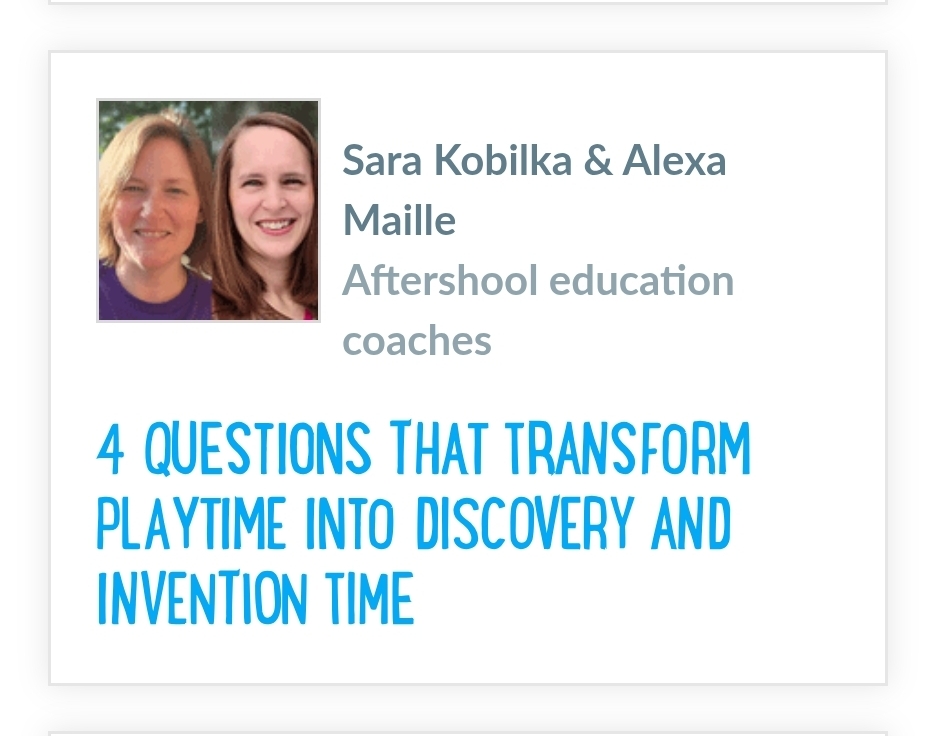In this season of overwhelming demands on our time, how can parents and caregivers deepen the relationship with their child?
The temptation is SO strong to simply provide the iPad or phone in order to keep them entertained so you can finish one more task on your never-ending to do list. And I speak from experience, not a place of judgement.
But what if we took the time, even 15 minutes, to genuinely engage in play and curiosity with our children? What would that look like?

The second article I co-authored with Alexa Maille, with guidance from Becky Tapley and the entire Maine Mathematics and Science Alliance – MMSA, is now available on the Genius of Play “Expert Advice” page (yup, that means I’m still a certified play expert just like my National Girls Collaborative Project friend Amanda Sullivan, but I digress).
The way Alexa and I suggest to get the most out of those 15 minutes, or whatever amount of time you can find, might surprise you.
The article is about purposeful questions to ask when building with an engineering kit, but our suggestions apply broadly, whether you’re play with dolls, building a fort, or making an art project.
Lead with questions
And just so there’s no confusion, these are NOT an informal version of a pop quiz. These are questions designed to help you understand your child better and how they think. These are questions asked with curiosity, not judgement because this is the child’s space to play and learn.
We list 4 main categories of questions in the article:
1. Questions about Observation/Explanation: Ask children to tell you about what they’re doing and why they’re doing it.
2. Questions to Share, Expand, and Clarify Thinking:
- What did you make? (Followed up with, Why did you pick that? What does it do?)
3. Questions to Dig Deeper:
- I noticed that time you did it differently. Why did you change what you were doing?
- Why do you think it worked this way?
- What is another way you can…?
4. Empowerment Questions: Giving kids a voice and a choice in the process of play helps them understand themselves.
- What do YOU want to make?
- What do YOU want to do next?
- What help do you need from me?
Play matters. It’s the BEST way for children to learn.
By joining them in their play, not as someone directing it, but as a collaborator and playmate, we send a message to a child that THEY matter.
And what better gift to give in this holiday season, the gift of our attention.
Part 1 of this article series offers advice on overcoming the voices in your help stopping you from fully engaging in play with your child.